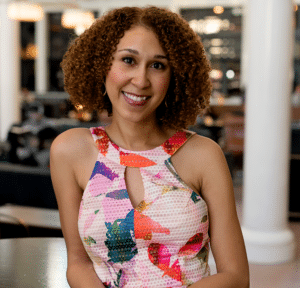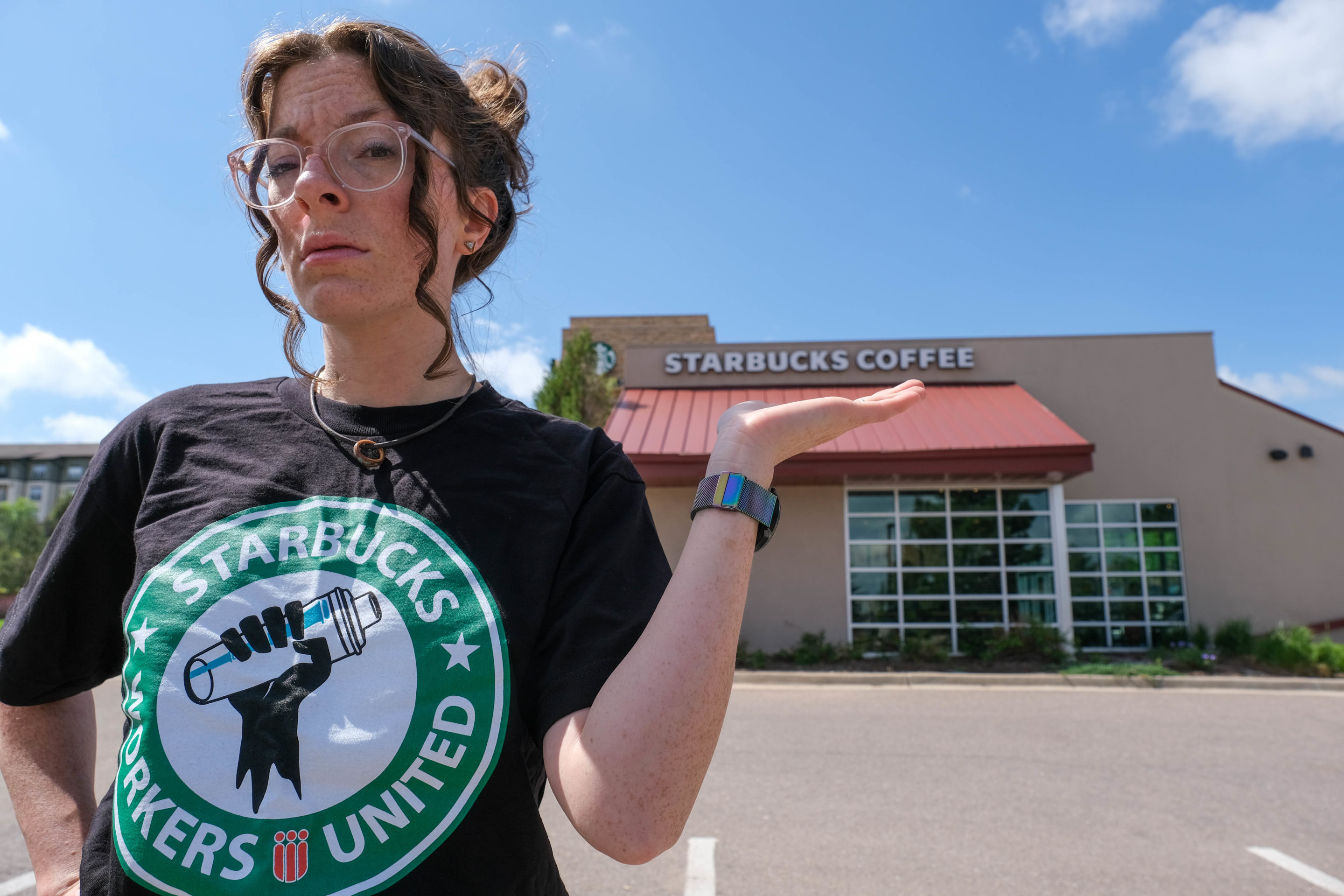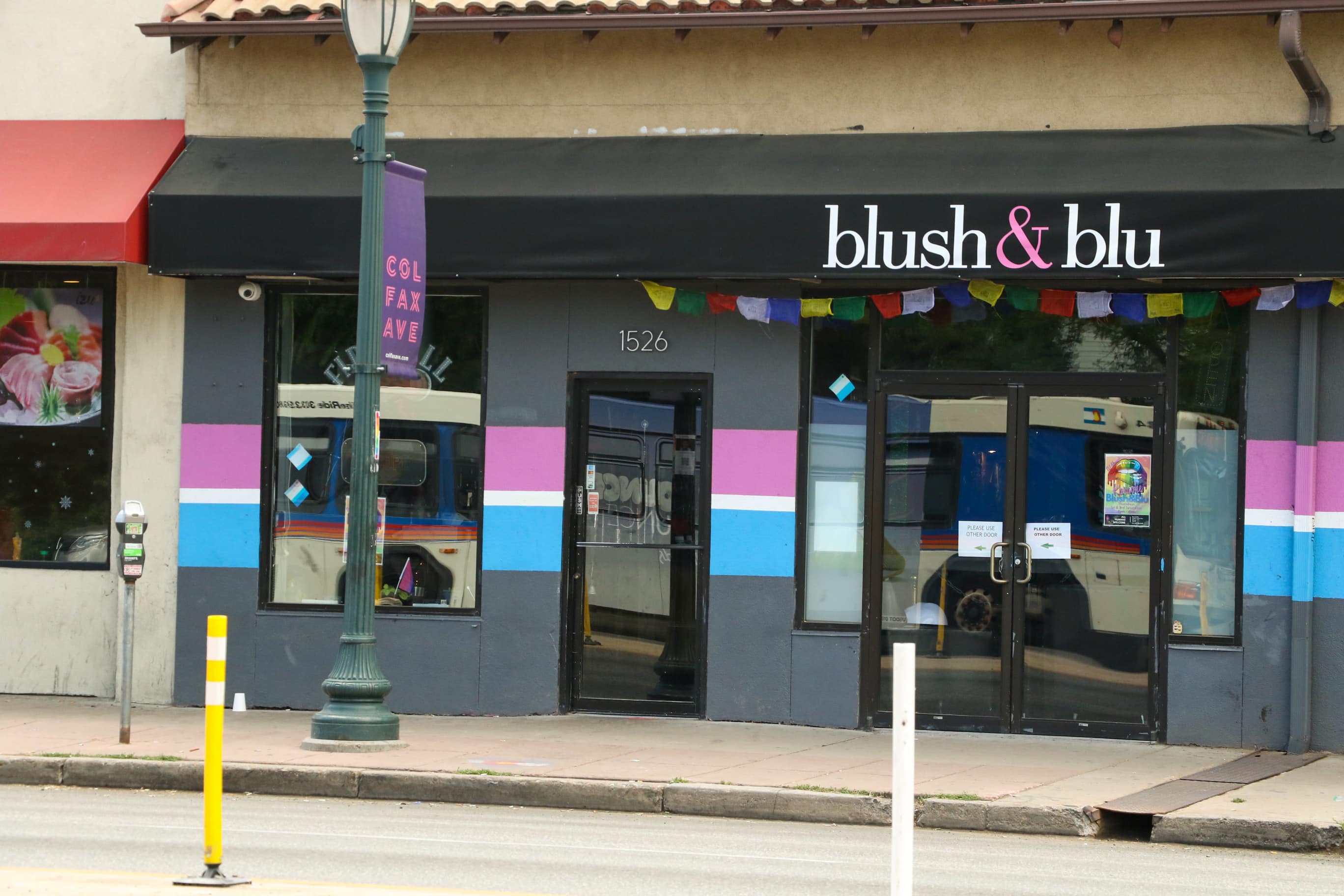//Illustration by Madison Lauterbach | [email protected]

Public relations strategist Krystal Covington is a one-woman powerhouse.
Over the last seven years, she’s built a networking empire with Women of Denver. It’s become one of the largest privately held membership organizations in the city. The program helps connect women entrepreneurs with community support and develop leadership skills.
Covington founded Women of Denver because she wanted to change the network experiences she herself was having. She watched as women weren’t offered high-paying jobs, business opportunities or features in financial news outlets or podcasts. She knew if she wanted to see change, she’d have to make it herself.
Outside her work with Women of Denver, Covington also owns her own marketing strategy company, GO Lead LLC. She’s been featured in dozens of publications and podcasts like Forbes, Denver Business Journal, Business Insider and The Wall Street Journal. Her other accomplishments include the 2021 Denver Business Journal 40 Under 40 Winner and a 2016 TEDx Talk.
Through her work as a marketing strategist, she’s also learned the power of news media. She sees the same issues with lack of representation that newsrooms face in the marketing world, especially at decision-making levels. Both industries have the tendency to shape public opinion with the products they generate and must wield that influence responsibly, she said.
This Q&A has been edited for length and clarity.
What are some issues you’ve personally seen arise when non-Black reporters cover Black stories and communities?
Well, I can tell you an example of thoughtful reporting I’ve seen. I saw an episode of John Oliver recently and I just respected the fact that he said, ‘Look, I am the last person you expect to be talking about Black women’s hair, but this needs to be discussed.’ And for me, I think it’s important that these stories are told and I felt it was clear that in his scripting there was direction and consultation from Black people. It was clear that he did not just make this stuff up himself or read things. He consulted people that have experienced these things so that he could speak on it appropriately. While there were pieces I felt were missing and things that I wish he would’ve said or points I wish he had made, because I could tell [he did research], I respected it.
When I see things where it’s clear that they didn’t consult someone that had ever experienced these things themselves, that’s when I just think, ‘Why wouldn’t you? How did you think that you could tell the story by observation alone?’ I think until representation is more equal, I do feel like it’s okay for white people to tell Black stories or stories of other minority groups, as long as they consult and try their best to get storytelling from that group to make sure that there’s accuracy. Experience trumps academia.
Why is it important to not only have more Black reporters in the news media, but also more Black representation in leadership roles?
You need multiple levels of approval. So I’ve been working in marketing for years, I’ve had multiple people review something. If the people that are reviewing my work don’t understand it, how can they give me feedback? How can this be done right? They’re gonna look at it and they’re going to say, ‘What does that mean? You should take that out,’ when it’s a critical piece of context that actually should be there. But because they don’t get it, they’re ripping at my art, they’re ripping up my content because it’s something that they haven’t experienced. They don’t have the context and experience or background to be able to understand it. So just having diverse demographics in the newsroom is going to make a difference in the way that they read and accept new content and the way that they are editing and changing it so that the story is consistent and truthful and fits the context.
We’ve all seen the commercials and ad campaigns that should never have been published. Why is it important to have representation of minority groups in marketing as well?
I’ve worked on marketing teams where someone in ownership or senior leadership will continue to approve things while every single person at the bottom disagrees with it. They don’t want to hear it. And I know for one company, it was the most disastrous, horrible, tone-deaf advertising. I can’t say what it was because it’s a well-known company that’s Colorado-owned, but they had terrible advertising content that continued to be approved from the top. The entire marketing team there was silenced but we all were constantly held accountable. People would say, ‘Oh my gosh, you worked for that company with that ad campaign?’ And, and they would say, ‘How did you let that happen? Why did you let that air?’ There was no other explanation except that the owners liked it. So, when people at that level have such decision-making power, it doesn’t matter if more numbers of people are warning them against it. They have the power to do what they want to do. And so the people at the top being diverse helps to create more voices to say there’s something not right about what you’re putting out here and can question it.
There’s a discussion about whether news outlets should be showing the videos of Black people killed by police because it can be so traumatic for the Black community. Can you tell me your thoughts on that?
I don’t know if it’s just my internet or just the constant reporting, but I feel like every time a Black man dies it was shown to me and it has been traumatic. It’s hard to handle. I think it’s a very difficult situation because when it first started happening, the first one I ever saw, I said, ‘I feel like I just watched a lynching.’ And I didn’t even know that still happened. I was so hurt and then I blamed the people who put it out there initially. That one wasn’t even as bad because back then it wasn’t played repeatedly on the TV news. So I watched it once and I felt terrible and then I didn’t have to look at it again. Now it’s just over and over and over again.
I believe [the videos] need to be available. What happened with the George Floyd trial happened because the video was available. People were able to see the entirety of the circumstance and be able to judge for themselves what occurred. I think that’s important, but I do think that it should not be replayed over and over again in the news. You don’t even need to play the whole video on the news, you can make it available. If you want to watch the whole thing, you want to see what actually happened, it’s available. You can make a choice to go find it. I shouldn’t have to look at a TV screen and keep seeing the thing repeatedly happening. I just started closing my eyes because I’m watching the life drain from a man.
Is there anything else you want to talk about that we didn’t touch on?
I think one thing that’s important to me is I really, both with things that are about women in general and things that are about people of color, I feel like it’s a lot of problems and no solutions. I just feel like they’re trying to get clicks and profiting off of minority issues. When I see those things, I feel like if you’re going to talk about it, try to be a part of the solution. They’ll just profit off of talking about our issues and bringing them out, but don’t support anything that helps it or supports it or events that make a change. You just want to talk about the problem. You don’t want to talk about anything that adds value. I do feel like that’s a bias in the reporting. It’s something that I have a problem with. I’ve seen some outlets that do things differently, where they’re actually sharing an idea of things that we can do to help have more political power and build up our communities and things like that. It’s not the kind of thing that says, pull up your pants. It’s the kind of thing that says learn how the legislature works, understand how to build political power in certain communities. And those kinds of things are really surprisingly refreshing and not just reinforcing stigma and stories that aren’t true.
Tickets are on sale now for our panel discussion For vs About: Reporting for Black Communities. You can click here to purchase yours.





0 Comments